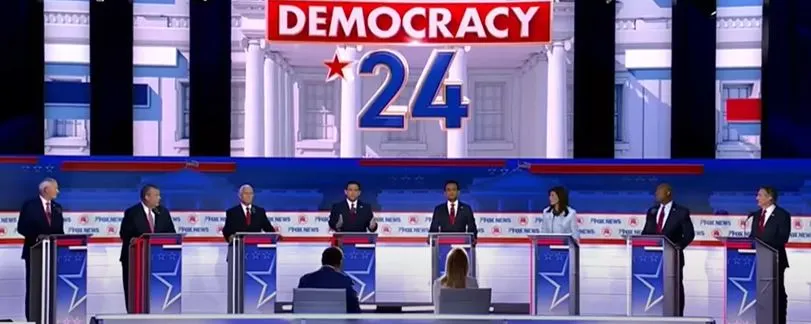The GOP Chronicles: Ideology and Evolution on Social Issues
What is GOP?
The Grand Old Party, better known as the GOP, has long been a cornerstone of American politics, representing conservative values and advocating for limited government. As a political juggernaut, the Republican Party’s ideology has evolved over the years, and the post-Donald Trump era has brought about notable shifts, particularly on social issues. GOP candidates seem to deliberately engage themselves by stoking racial and historical backgrounds to polarize the voters. To further the stance, the main candidates for the 2024 elections are not shying away from distorting or deviating from the facts. Ironically, the GOP was founded in 1954 by anti-slavery activists who opposed the Kansas-Nebraska Act.
Donald Trump speaking on dehumanizing and continued his tirade against the undocumented and illegal immigrants before white audiences. This is very dangerous as it takes leads from the Hitler’s famous blood purity.

Florida Gov. Ron, Desantis talks about African American history and claims enslaved people developed skills. Other side Nikki Halley avoids any mention of slavery but opens up later on Civil war and later acknowledges that civil war was about “ the slavery”
Let us see how the GOP’s historical ideology and the changing landscape of Republicans’ stance on social issues in the aftermath of the Trump presidency.
The GOP Ideology: A Historical Overview:
The Foundation: Founded in 1854, the Republican Party emerged as an anti-slavery coalition, positioning itself against the spread of slavery into new territories. Abraham Lincoln, the first Republican president, solidified the party’s commitment to ending slavery during the Civil War.
Small Government and Fiscal Conservatism: Throughout its history, the GOP has championed limited government intervention in the economy, advocating for free-market principles and fiscal conservatism. This commitment to reducing government interference has been a consistent thread in Republican ideology.
National Security and Defense: Republicans have traditionally positioned themselves as strong on national security and defense, promoting a robust military presence and a proactive approach to foreign policy.
Shifts in GOP Ideology: Post-Donald Trump Era:
Populism and America First: The election of Donald Trump in 2016 marked a significant departure from traditional GOP ideology. Trump’s “America First” approach embraced economic protectionism and challenged the party’s historical commitment to free trade. Populist sentiments gained prominence within the GOP, with an emphasis on addressing the concerns of working-class Americans.

Shifts in Social Issues: Perhaps one of the most notable transformations within the GOP post-Trump has been the shift in approach to social issues. While Republicans have traditionally aligned with conservative values on issues like abortion, LGBTQ+ rights, and immigration, the post-Trump era has witnessed a recalibration.
Changes in Stance on Social Issues:
Abortion: The GOP, historically pro-life, has seen a nuanced debate within its ranks. While anti-abortion sentiments persist, some Republicans advocate for a more moderate stance, acknowledging individual liberties and exceptions in cases like rape, incest, or when the mother’s life is at risk.
LGBTQ+ Rights: The Republican Party has experienced a notable shift on LGBTQ+ rights. While traditional conservative elements remain, an increasing number of Republicans express support for LGBTQ+ rights, reflecting changing societal attitudes.
Immigration: Under Trump’s leadership, the GOP adopted a more restrictive approach to immigration, emphasizing border security. Post-Trump, there is ongoing debate within the party on striking a balance between enforcing immigration laws and addressing the plight of undocumented individuals.
The GOP’s ideology is a dynamic tapestry woven with historical conservatism, evolving responses to societal changes, and the impact of influential leaders. The post-Donald Trump era has ushered in a new chapter for Republicans, prompting reevaluations of traditional stances on social issues. As the GOP navigates this ideological terrain, it remains a pivotal force in American politics, shaping the nation’s trajectory and engaging in an ongoing conversation about its identity in the 21st century.

